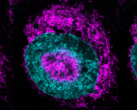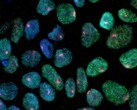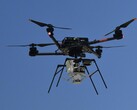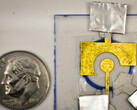Researchers have designed a new mechanical adhesive system that mimics the powerful suction organ of the remora, or sucker fish. The system, detailed in the journal Nature, can stick to soft, slippery surfaces for days or weeks, a breakthrough that solves a major challenge faced in fields like medicine and environmental science.
The MIT-led team developed the device, called MUSAS (Mechanical Underwater Soft Adhesion System), by copying the remora's unique anatomy. It combines a main suction disc with rows of smaller compartments for gripping uneven surfaces. The system's key innovation is a set of tiny microneedles made from a shape-memory alloy. When exposed to body temperature, these needles gently interlock with tissue, creating a strong and reliable bond that resists being dislodged.
This technology has significant potential to revolutionize drug delivery. In animal tests, the device successfully adhered to the stomach lining to provide a week-long, sustained release of the HIV drug cabotegravir, which could one day offer an alternative to daily pills or frequent injections. The researchers also showed it could deliver RNA drugs directly into the tissue of the stomach lining, avoiding the issue of digestion before reaching the target area.
The device also shows promise as a diagnostic tool. When equipped with an impedance sensor, it was able to stick to the esophagus in an animal model and monitor for gastroesophageal reflux disease (GERD). This could provide a much more comfortable alternative to current GERD sensors, which require a tube to be placed through a patient's nose or mouth.
Beyond medicine, the team demonstrated the device’s potential for animal and environmental science. They successfully attached a temperature sensor to a live fish, allowing them to accurately monitor the water temperature as the fish swam at high speeds. The researchers now plan to optimize the platform for other uses, including delivering vaccines in clinical settings.






















